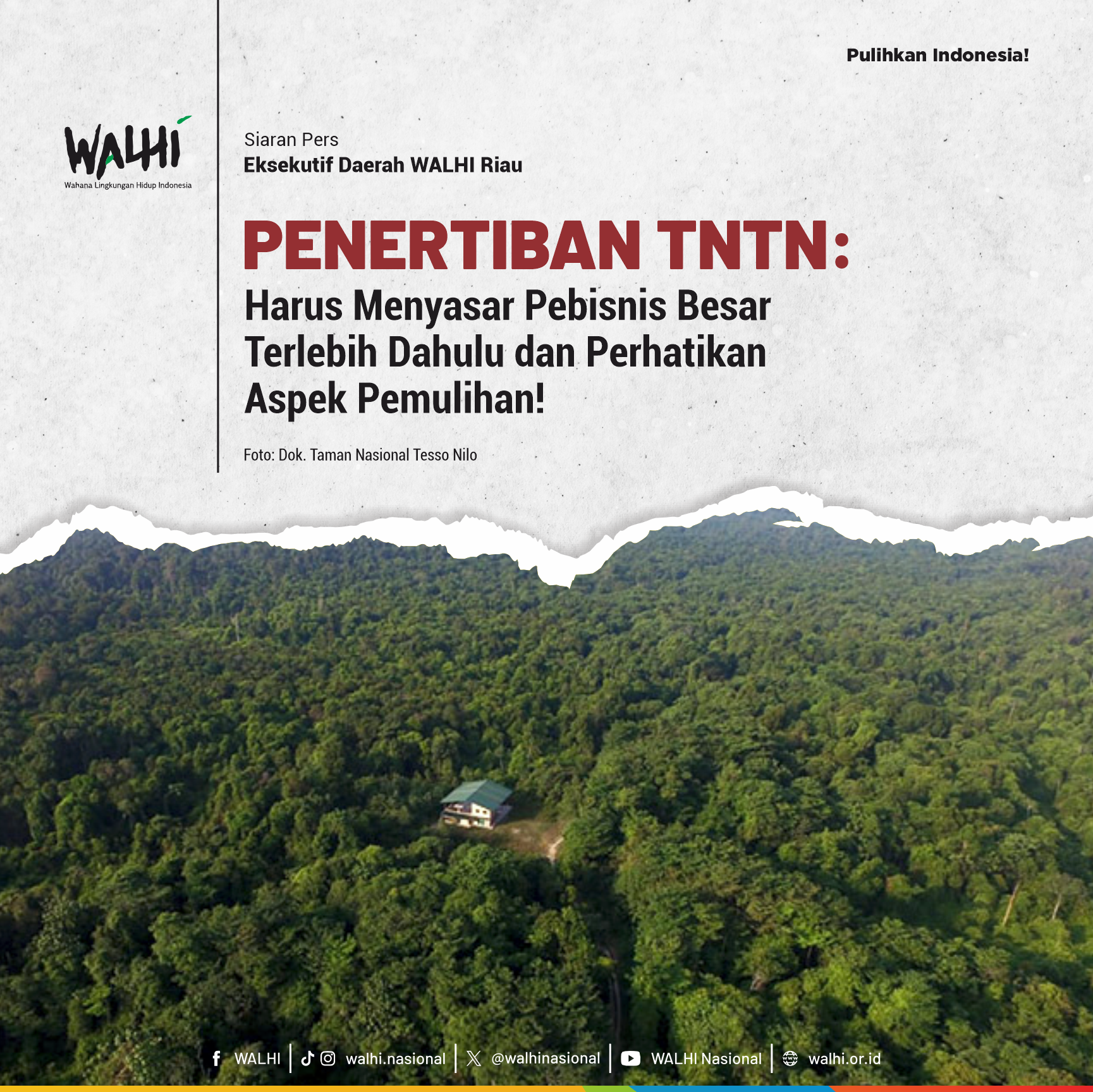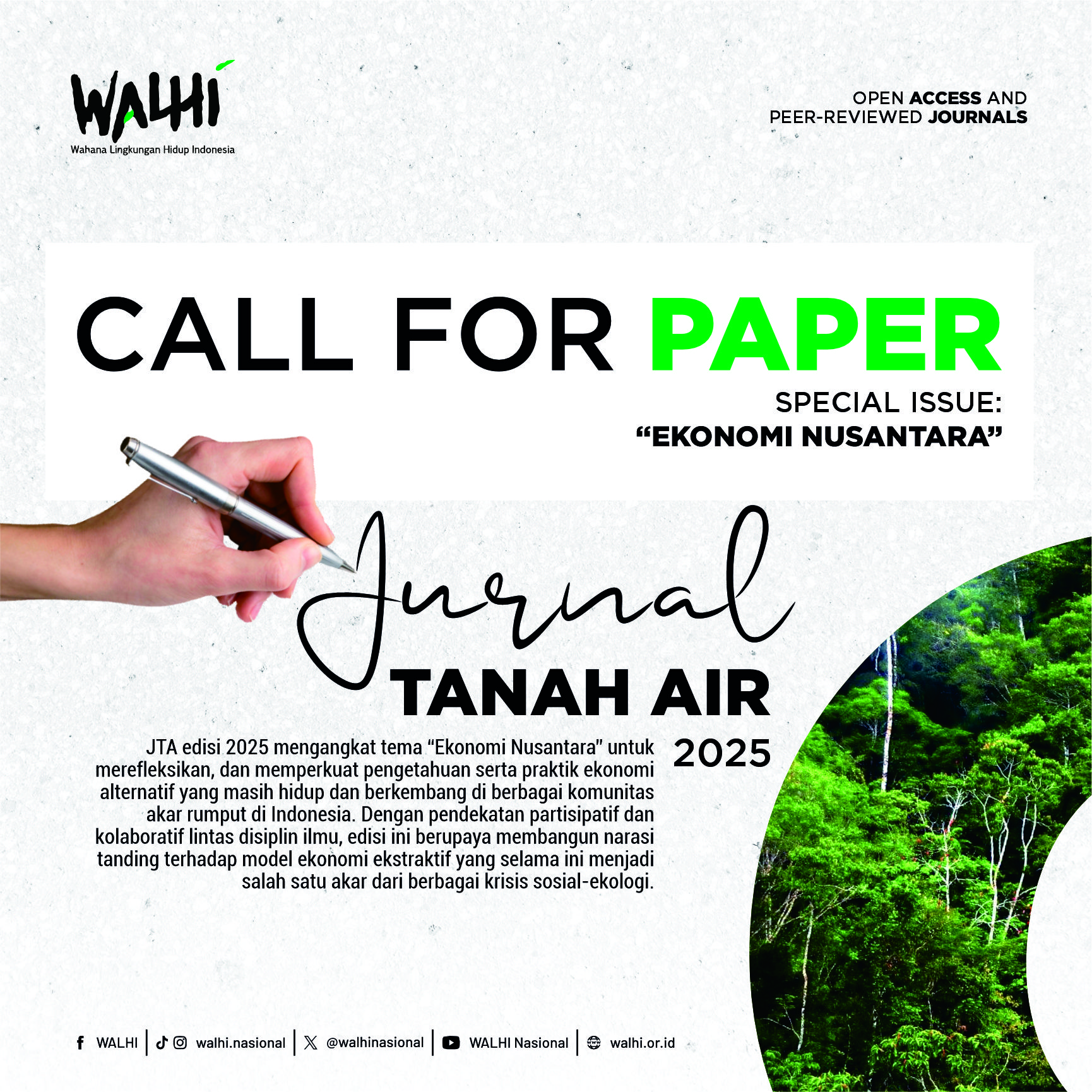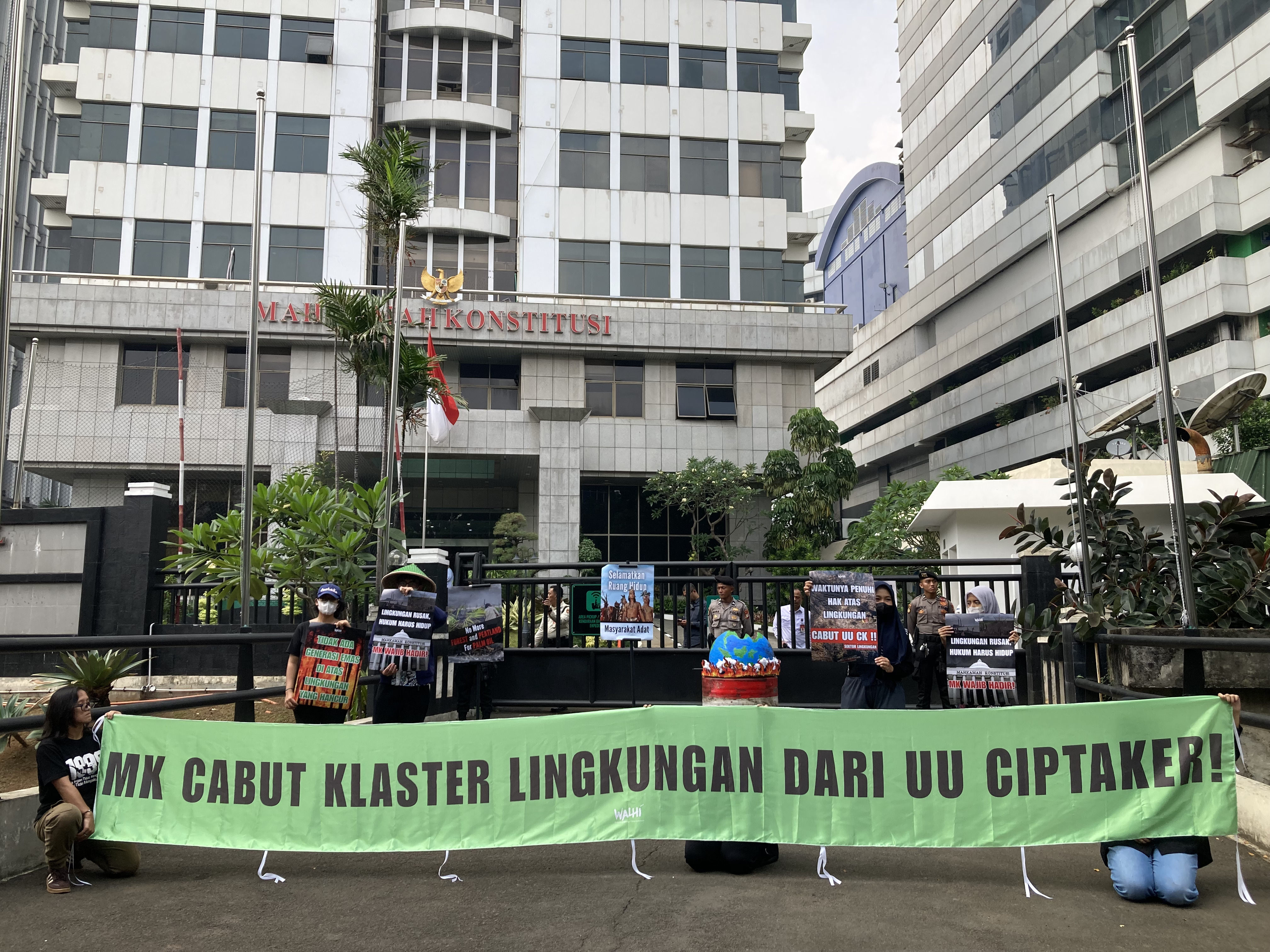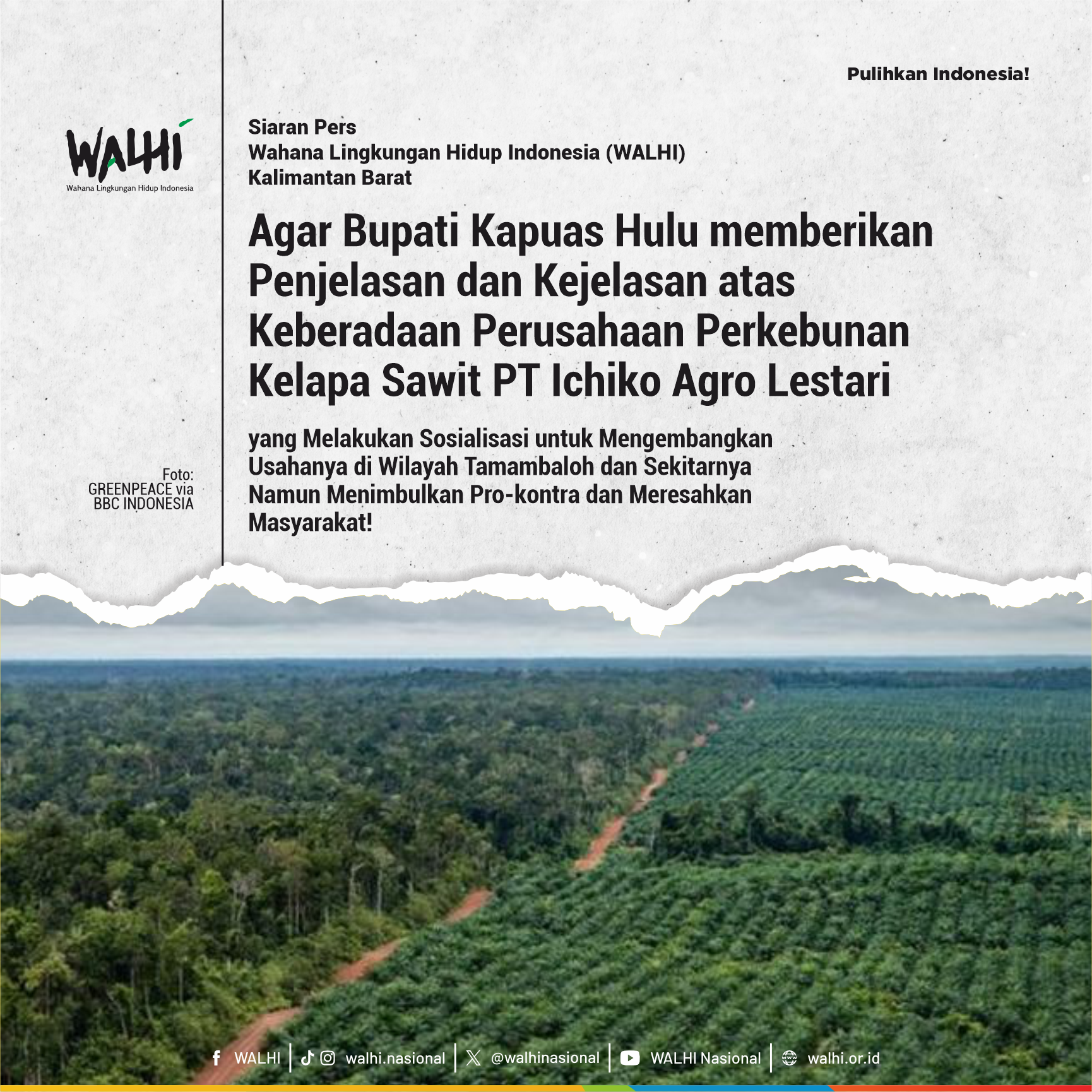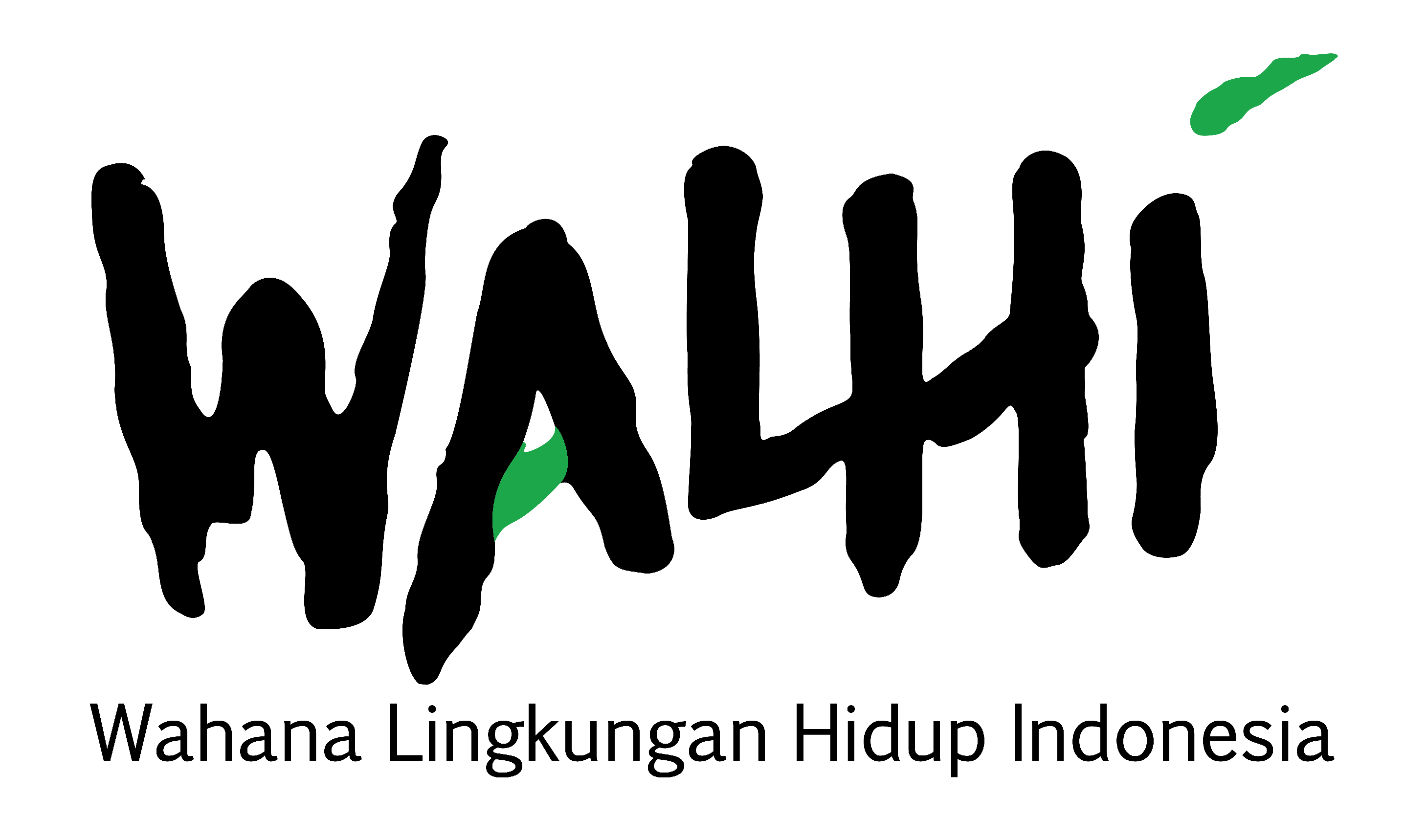Tuesday (5/9), WALHI that incoporated in the coalition of the Indonesian Infrastructure Development Watch, conducted a Media Briefing at Bakoel Koffie. The findings presented particularly about National Strategic Project that financed through the debts of the Multilateral Development Bank, specifically the World Bank Group, Asian Development Bank (ADB), Asian Infrastructure Investment Bank (AIIB) established by the China government and commenced operations in 2016, and the Islamic Development Bank (IDB) which also established the Islamic Mega Infrastructure Bank. Besides financed through Multilateral Development Bank, the financing is also through bilateral loans from other countries such as Germany, Australia or Japan, and private loans. If divided by the total population of Indonesia that reached 257 million people, then each person bear debt approximately about Rp 14.420 million ". The debt is used for economic sector such as; Agriculture, Farm, Forestry & Fisheries, Mining & Quarrying, Manufacturing, Electricity, Gas & Water Supply, Building, Trading, Hotel & Restaurant, Transportation & Communications, Finance, Rental & Services Company and other sectors. Thus, the debt is used directly for the livelihood of people, that require large availability of land. Moreover it potentially damaging the environment and violating the rights of citizens. As of July 2017, based on data from the Ministry of Finance of Indonesia, Indonesia's foreign debt (bilateral and multilateral) amounted to Rp 734.98 trillion, with details as follows:
| LOAN | 734.98 |
| A. Foreign Debt | 729.58 |
| 1. BILATERAL | 313.72 |
| 2. MULTILATERAL | 371.21 |
| a. World Bank | 238.49 |
| b. ADB | 118.88 |
| c. IDB | 10.82 |
| d. IFAD | 2.42 |
| e. EIB | 0.25 |
| f. NIB | 0.15 |
| g. AIIB | 0.19 |
| 3. COMMERCIAL BANK | 43.70 |
| 4. SUPPLIERS | 0.95 |
| B. Domestic Loan | 5.40 |
To achieve the infrastructure development targets, Jokowi Government undertakes three main steps: (1) Acceleration of Permit; (2) Acceleration of Land Procurement and (3) Acceleration of Financing through Debt. "The three steps are oriented only on the purpose, while the process of citizen participation and protection of citizens are ignored. For example, because the project should finish as fast as possible, they cut time in such a way for the preparation of AMDAL ", added Siti Aminah. Infrastructure development that is not participatory, not accompanied by AMDAL or preparing AMDAL only for formalities, the emergence of land mafia that causes citizens to be deprived of their economic, social and cultural rights are some of the problems that arise in the implementation of development projects. Muhammad Al Amin from Walhi South Sulawesi stated; "The transfer of fishermen to the flats, will deprive fishermen from their economic and cultural base, and the reclamation itself destroys the environment. Certainly they will be poorer than ever. " The same thing happened in West Java, in Kertajati Airport development project which uses 10 village land. Meiki from Walhi West Java, stated; "due to the construction of the Kertapati Airport, many farm workers lose their job because the rice fields are obliged to switch function. Criminalization and agrarian conflict occur in the region". The banks that provide the debt should also play a role not to damage the environment and social life of the projects. Bank also became one of the institutions/sectors involved in managing environmental and social risks as regulated in Law no. 32 of 2009 on Environmental Protection and Management which regulates obligations for industries to protect nature and the environment. Based on the condition above, Coalition of Infrastructure Watch hopes Jokowi Government to implement environmental and social protection for every infrastructure project in a consistent and participatory manner, by put forward on the protection of citizen rights.

